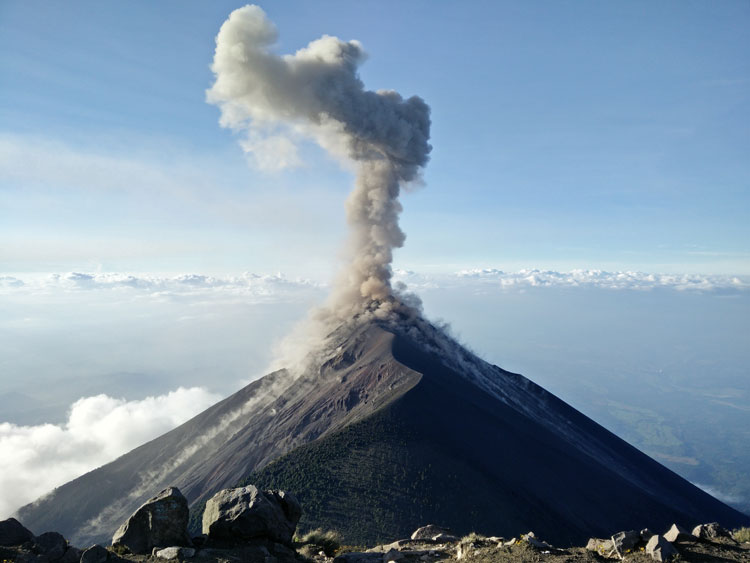Soldier survives after falling into an active volcano
A solider visiting Hawaii Volcanoes National Park hopped a metal safety barrier to get a better look inside of Kilauea volcano, one of the world’s most active volcanoes. As he peered over the rim of the volcano the ground collapsed beneath him and he fell 70 feet, landing on a narrow ledge inside of the volcano. The man got lucky—had he missed the ledge he would have fallen 300 feet into the caldera. Another visitor witnessed the fall and called authorities. Three hours later, rescue crews were able to put the man in a stretcher and remove him from the volcano. The man, whose name has not been released, is a U.S. Army soldier based at the Pohakuloa Training Area on the Big Island. He was initially listed in critical condition but has since been upgraded to stable.
Mountain Hardwear will no longer use flame retardant on their tents
Starting this year, all tents made by the outdoor gear manufacturer Mountain Hardware will no longer be treated with flame retardant chemicals. The decision comes after tent manufacturers partnered with Duke University to study whether the flame-retardants used to treat tents impacted campers in any way. The study found that people who set up tents carried the chemicals on their hands and that those that slept in tents spent the night breathing in the toxic chemicals. Tents are commonly treated with organophosphates, a substance also found in pesticides and nerve gas. Company president Joe Vernachio told Adventure Journal that the decision did not come due to pressure from customers but because after studying the data company officials asked each other if they wanted to sleep in tents coated with toxic chemicals. “We all said no,” Vernachio said.
Indonesia is moving its capital city because Jakarta is sinking
Indonesia’s planning minister has announced that the capital of the country will move away from Jakarta, in part because the current capital city has sunk eight feet in the last 10 years. Researchers predict that the mega-city could be entirely underwater by 2050. The city is located on the coast on swampy land and half of it is below sea level. Aside from changes in ocean levels, the city is also sinking because of the extraction of groundwater for drinking and bathing. While no decisions have been made on the new location of the capital city, one frontrunner is the city of Kalimantan, located on the part of Borneo that belongs to Indonesia. No matter where the new capital ends up, the move could take up to a decade to implement.








